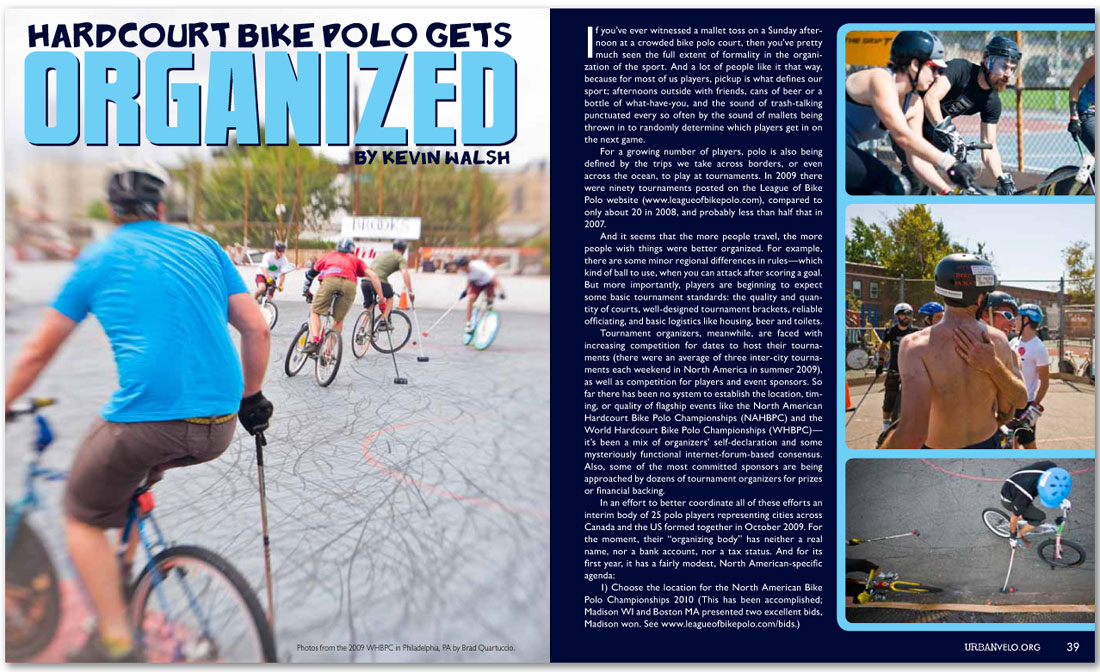


Hardcourt Bike Polo Gets Organized
By Kevin Walsh
If you’ve ever witnessed a mallet toss on a Sunday afternoon at a crowded bike polo court, then you’ve pretty much seen the full extent of formality in the organization of the sport. And a lot of people like it that way, because for most of us players, pickup is what defines our sport; afternoons outside with friends, cans of beer or a bottle of what-have-you, and the sound of trash-talking punctuated every so often by the sound of mallets being thrown in to randomly determine which players get in on the next game.
For a growing number of players, polo is also being defined by the trips we take across borders, or even across the ocean, to play at tournaments. In 2009 there were ninety tournaments posted on the League of Bike Polo website (www.leagueofbikepolo.com), compared to only about 20 in 2008, and probably less than half that in 2007.
And it seems that the more people travel, the more people wish things were better organized. For example, there are some minor regional differences in rules—which kind of ball to use, when you can attack after scoring a goal. But more importantly, players are beginning to expect some basic tournament standards: the quality and quantity of courts, well-designed tournament brackets, reliable officiating, and basic logistics like housing, beer and toilets.
Tournament organizers, meanwhile, are faced with increasing competition for dates to host their tournaments (there were an average of three inter-city tournaments each weekend in North America in summer 2009), as well as competition for players and event sponsors. So far there has been no system to establish the location, timing, or quality of flagship events like the North American Hardcourt Bike Polo Championships (NAHBPC) and the World Hardcourt Bike Polo Championships (WHBPC)—it’s been a mix of organizers’ self-declaration and some mysteriously functional internet-forum-based consensus. Also, some of the most committed sponsors are being approached by dozens of tournament organizers for prizes or financial backing.
In an effort to better coordinate all of these efforts an interim body of 25 polo players representing cities across Canada and the US formed together in October 2009. For the moment, their “organizing body” has neither a real name, nor a bank account, nor a tax status. And for its first year, it has a fairly modest, North American-specific agenda:
1) Choose the location for the North American Bike Polo Championships 2010 (This has been accomplished; Madison WI and Boston MA presented two excellent bids, Madison won. See www.leagueofbikepolo.com/bids.)